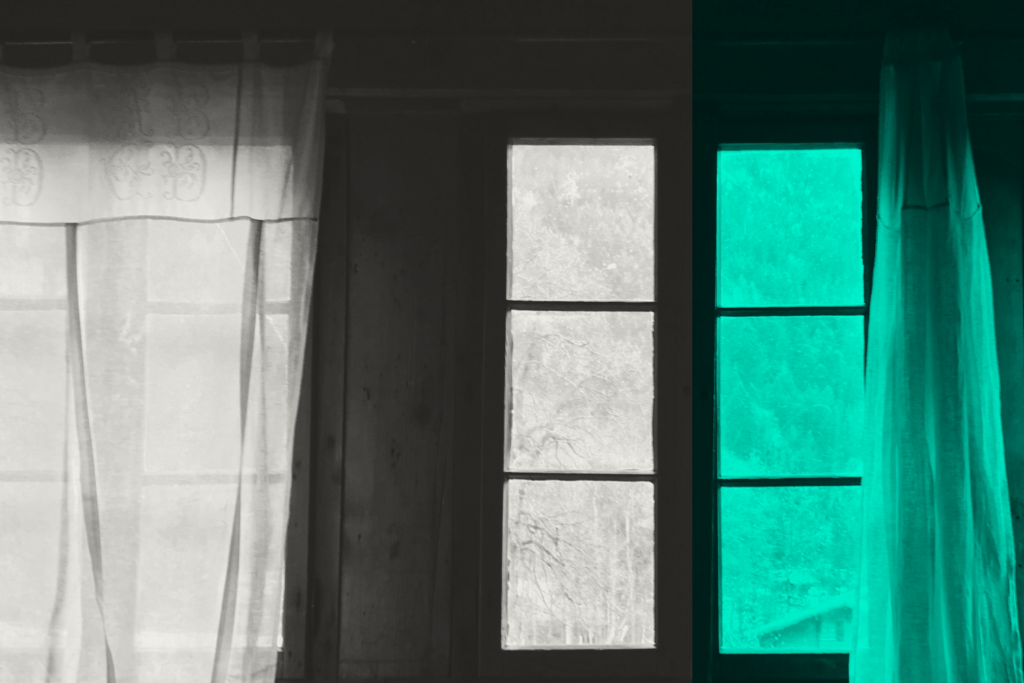Yaad-e-maazi azaab hai ya rab
Cheen lay mujhse hafiza mera
(Lord, the memory of the past is a great torment. Erase my every memory.)
On looking through the window in the early hours of dawn, I looked closely at the tree which had started to bloom. It was mid-spring and the trees were flowering. From an Islamic pattern carved out at the entrance of the gate, I remembered a loud thud that I heard on a Saturday. It was evident that I had to open the gate and see if my mother was home from work. To my surprise, I welcomed two army personnel to a party I wasn’t hosting.
I was in grade nine. We usually had Saturdays off. I was reading a book, a gift from my aunt, and knew my mother would be back at 3:00 PM. This was before cell phones, and we still used landlines. She would call at 2:00 PM and remind me about my daily chores. Life in Kashmir was marked by protests and a lingering chill. In the evenings, the protests took place after the Maghrib prayers, and I recall watching the silhouettes of birds against the sunset.
The normally picturesque Kashmir felt morose that day. I grew up in post-90s Kashmir, hearing endless stories from my parents about the bloodshed and trauma they’d witnessed. The ways of terror and fear were instilled in the minds of the locals. For instance, my father was struck by the butt of a rifle when visiting an Eidgah. These were the legacies that we grew up with. Stories of winter and the kangri were always sidelined by the larger picture of conflict at the forefront.
That day was reflective of Kashmir in the 90s and replicated my parents’ stories. The very first memory of the army personnel is vivid and will always be as fresh as spring. After their initial inquiries, I asked them what they needed. I don’t recall what they said, but for the first time, I felt grateful that I was a woman. I have a clear memory of those army personnel asking if the family had any sons. They suspected that I had a brother who had joined the protests. Despite repeatedly insisting that my family had no sons, they refused to leave. I watched them through the eyes of a child in the ninth grade, still unaware of the politics of the place I called my hometown. My mind also took in the jarring loudness of their olive-green uniforms and helmets; the mountains not only echoed but shrieked from the discordance. This searching and frisking of homes occurred every other day.
My ordeal finally ended when my neighbour came outside her gate and politely asked the army personnel to leave. And as I looked back, I saw that my neighbour, the boy the army personnel were looking for, was lying down on the rooftop. He signalled me with pursed lips and a finger on his mouth to keep silent. At that moment, I heard the birds warble melancholically and a loud Azan from the mosque. I recall how my cheeks almost turned red until I convinced myself that I’d seen nothing. I saw his shaking hands and the way his face was overcome with emotion. I almost fainted from the sight of his anguished state. This snippet of memory always leaves me in tears. The clock eventually did strike at 3:00 PM. My mother finally arrived in a haze of fear. On her way back home, she’d also encountered the army personnel, who had asked her “if she was related to the young girl in that house.” I still remember the look on my mother’s face and how she held herself together for me.
As of today, nothing this traumatic has happened to me. Nor do I wish for it. I remember pleading with the army personnel to go away, but they remained unmoved. After almost a decade, whenever I come back home, the memory also remains unmoved. The same door remains, as does the silence. Sometimes, we are made to remember, and sometimes to forget. But this memory is to stay for my children and grandchildren – not only because I, as a woman, had to face them, but because I, as a lived human of this place, had to face it. For Srinagar is my home and will always remain so, despite the memory.


